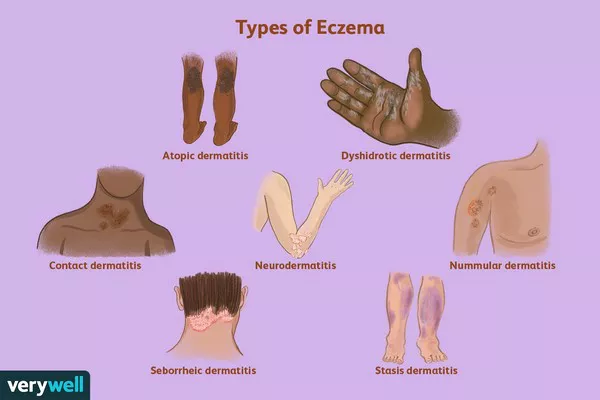Eczema, medically known as atopic dermatitis, is a chronic skin condition characterized by inflammation, itching, and redness. While it commonly affects areas like the elbows, knees, and face, it can also manifest on the scalp. Eczema on the scalp can be particularly challenging due to the discomfort it causes and the potential impact on hair health. Recognizing the symptoms is crucial for timely diagnosis and management. In this article, we delve into the various symptoms of eczema on the scalp and explore potential treatment options.
1. Itching and Irritation:
One of the hallmark symptoms of eczema on the scalp is intense itching. This itching can be persistent and may worsen at night, disrupting sleep patterns and causing considerable discomfort. Individuals may feel compelled to scratch the affected area, leading to further irritation and potential damage to the skin. The itching sensation can vary in intensity, ranging from mild to severe, and may significantly impact quality of life.
2. Redness and Inflammation:
Eczema on the scalp often presents with redness and inflammation. The affected skin may appear visibly irritated, with areas of redness spreading across the scalp. Inflammation can contribute to discomfort and tenderness, making it essential to address the underlying cause to alleviate symptoms effectively.
3. Flaky Scalp:
Another common symptom of scalp eczema is flakiness. The affected area may develop dry, flaky patches or scales, similar to dandruff. These flakes can vary in size and may become more pronounced during flare-ups. The presence of flakiness can exacerbate itching and may be mistaken for other scalp conditions such as seborrheic dermatitis.
4. Scalp Rash:
In some cases, eczema on the scalp can lead to the formation of a rash. This rash may consist of raised bumps, blisters, or pustules, depending on the severity of the condition. The rash may be localized to certain areas of the scalp or spread across the entire scalp surface. It is essential not to ignore the presence of a rash, as it can indicate an active inflammatory response that requires prompt attention.
5. Dryness and Cracking:
Scalp eczema can cause the skin to become excessively dry, leading to cracking or fissures. These fissures may be painful and can increase the risk of secondary infections if left untreated. Moisturizing the scalp regularly can help alleviate dryness and prevent further complications.
6. Hair Loss:
In severe cases of scalp eczema, hair loss may occur. Persistent scratching, inflammation, and damage to the hair follicles can contribute to hair thinning or bald patches. Addressing the underlying inflammation and managing symptoms effectively can help minimize the risk of hair loss associated with eczema on the scalp.
7. Oozing or Weeping:
During flare-ups, eczema on the scalp may result in oozing or weeping lesions. These lesions can be painful and may crust over as they dry. It is essential to keep the affected area clean and dry to prevent infection and promote healing.
8. Sensitivity to Hair Products:
Individuals with scalp eczema may experience increased sensitivity to hair care products such as shampoos, conditioners, and styling products. Certain ingredients commonly found in these products, such as fragrances and preservatives, can exacerbate inflammation and irritation. Opting for hypoallergenic or fragrance-free products may help reduce sensitivity and improve symptom management.
9. Secondary Infections:
Constant scratching and compromised skin barrier function can predispose individuals with scalp eczema to secondary bacterial or fungal infections. Symptoms of infection may include increased redness, warmth, swelling, and pus drainage. Prompt medical attention is necessary if signs of infection develop to prevent complications.
10. Emotional Impact:
Beyond the physical symptoms, scalp eczema can also take a toll on emotional well-being. Chronic itching, discomfort, and visible skin changes can lead to feelings of self-consciousness, anxiety, and depression. It is essential for individuals with scalp eczema to seek support from healthcare professionals and loved ones to address both the physical and emotional aspects of the condition.
Conclusion
In conclusion, eczema on the scalp presents with various symptoms, including itching, redness, flakiness, rash, dryness, hair loss, oozing, sensitivity to hair products, and susceptibility to secondary infections. Early recognition of these symptoms is crucial for timely diagnosis and effective management. Consulting a dermatologist is recommended for proper evaluation and personalized treatment strategies tailored to individual needs. With proper care and management, individuals with scalp eczema can experience relief from symptoms and improve their overall quality of life.
























